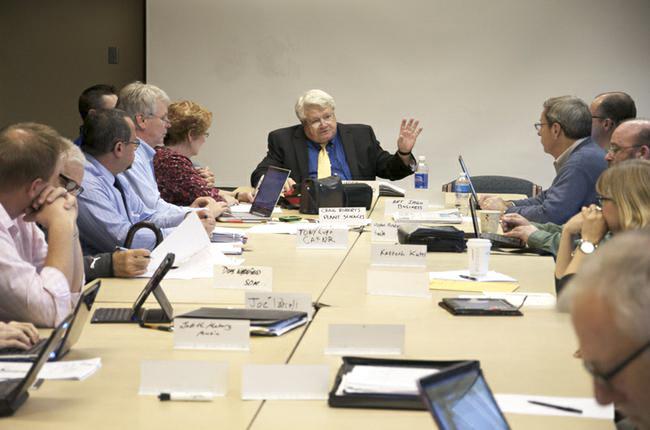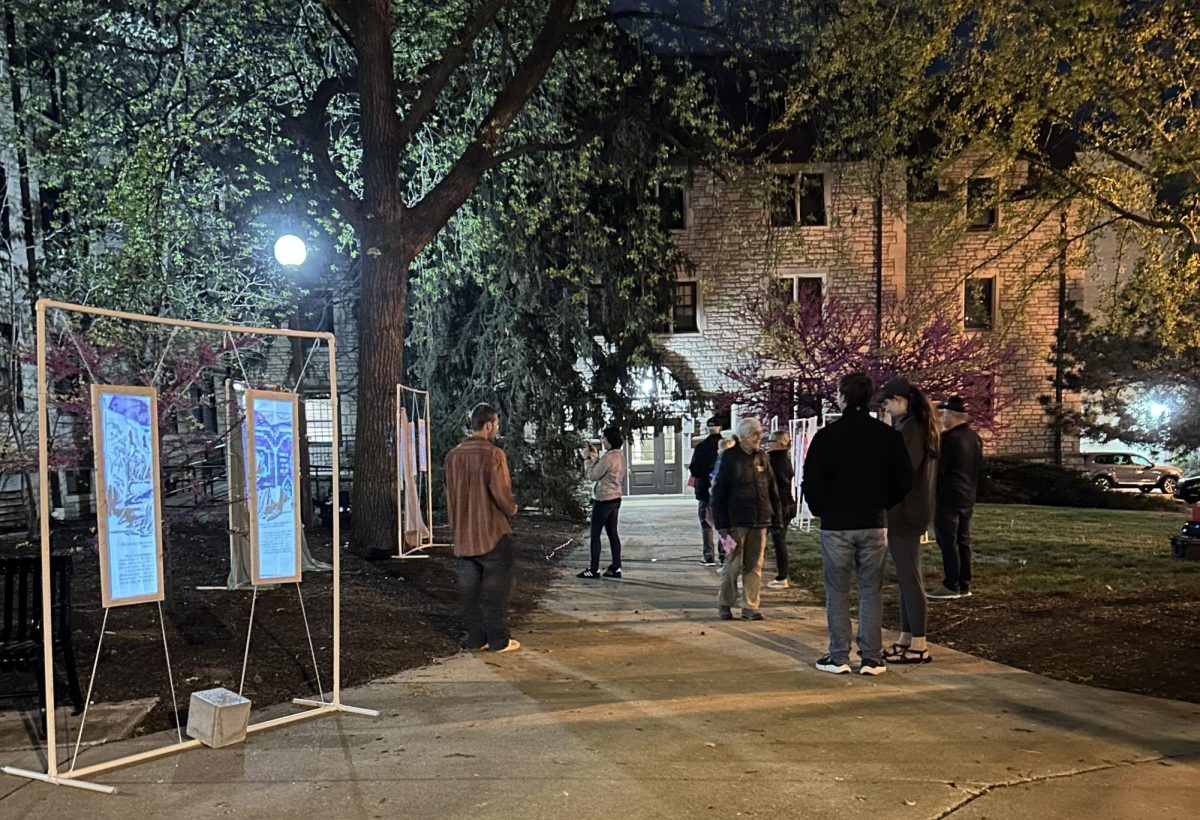A fundraising campaign through the University of Missouri Press hopes to raise $40,000 to digitize books related to Missouri or by Missouri authors.
The Missouri Essential catalog, the focus of the fundraising effort, includes Mark Twain’s works, books about former President Harry S. Truman and the six-volume History of Missouri. UM Press Director David Rosenbaum said digitizing these titles will bring them to “a new generation of readers.”
The [campaign has raised](https://donatetomu.missouri.edu/givedirect/Item.aspx?item_id=146) 56 percent of the goal, almost $23,000, as of April 5. The funds raised will go toward the intensive digitizing process.
“It’s easily a hundred hours of work, and that assumes everything goes smoothly,” Rosenbaum said.
The process begins with scanning each page into the computer. Next, the characters on the page have to be recognized as letters instead of images. Then, each book is re-edited to ensure that nothing was lost in translation.
State Historical Society Director Gary Kremer said he is pleased with the launch of this campaign, and he sees it as a way to introduce more people to the state’s history.
“It seeks to identify important, or ‘essential,’ older works that would help any reader come to a greater understanding of the complexity of Missouri over time,” Kremer said in an email.
The [Missouri Essential Campaign](https://donatetomu.missouri.edu/givedirect/Item.aspx?item_id=146) is just one example of how the UM Press is adjusting to the changing world of publishing. Rosenbaum said many UM Press titles are available on various platforms. For all new books, the press creates a digital and print copy, a policy that started in 2012. The campaign will also allow all titles produced before 2012 to be digitized.
Despite the increased digital trend, Rosenbaum said, there is still more demand for print copies of scholarly works. Print makes up 80 percent of the press’ market, he said.
The backlist of books published anytime before 2013 contains over 1,000 titles, Rosenbaum said. He said 400 to 500 of these titles are about Missouri.
“These are classics that will be made more readily available to readers who seek to explore our state’s rich cultural heritage,” Kremer said.
####Damage control
The press, founded in 1958, was almost closed in May 2012 when UM President Tim Wolfe withdrew the $400,000 annual subsidy, according to [previous Maneater reporting](https://www.themaneater.com/stories/2012/6/26/embattled-um-press-proponents-protest-board-curato/). The press could not sustain itself and had to shut down.
The announcement of the closure sparked [debate in Faculty Council meetings](https://www.themaneater.com/stories/2012/8/23/um-press-talk-continues-faculty-council/) and the “Save the University of Missouri Press” [Facebook page](https://www.facebook.com/SaveTheUniversityOfMissouriPress?fref=ts), which accrued over 2,700 likes. In response to the controversy, the ownership of the press transferred to MU. Rosenbaum, who had worked in the publishing industry for 16 years, was [hired as director of the press](https://www.themaneater.com/stories/2013/10/16/new-um-press-director-seeks-keep-press-financially/) in November 2013.
“The damage done in 2012 was significant,” Rosenbaum said. “We had to build ourselves back up. We are not quite at that (pre-2012) level.”
####A sustainable future
Rosenbaum said the press has been improving, and he hopes to make the press self-sustaining one day. MU still pays the $400,000 subsidy, an amount that Rosenbaum said is common for university presses.
“I expect it will be several years before the changes we’re making today will be fully reflected in our finances,” he said. “Nevertheless, I’d like to see a significant reduction in our reliance on funding from MU in the next five years.”
Quick turnarounds are rare in the publishing industry, so climbing out of debt takes time, Rosenbaum said. He said the administration is supportive of his goals and is giving him the time to repair the damage.
The transfer in ownership was a “smart, healthy move,” Rosenbaum said, and has helped the press improve its ties with MU by presenting itself as a one-stop publishing shop for various departments and colleges. MU faculty also have greater representation on the press’ board as well, Rosenbaum said.
“We are looking closely at MU’s mission and making changes,” he said.
Those changes include expanding the areas of interest for the press. Historically, the press has focused on Missouri, history, journalism and literary criticism, political science and political philosophy.
Now, the press has titles related to organizational studies, which are part of a series with the MU’s Center for the Study of Organizational Change.
“Publishing titles in this area both plays to a particular strength here at MU but has a national audience,” Rosenbaum said. “Likewise, we’ve begun reviewing titles for a program in human and animal bioethics. This publishing program will also have significant national appeal but should appeal and be most relevant to important land-grant schools like MU.”
With a background in commercial publishing, Rosenbaum is experienced in running a profitable publisher. However, he finds his new position more fulfilling, as he serves a mission not centered around netting a profit. Under his guidance, the UM Press has adopted tools to measure financial implications of publishing a book.
“We don’t want to be in the business of losing money,” he said. “(The goal is to) break even.”
Rosenbaum said he has seen progress, but the publishing industry is about the long-term, not next quarter’s profits.
“It takes time to show results,” he said.














